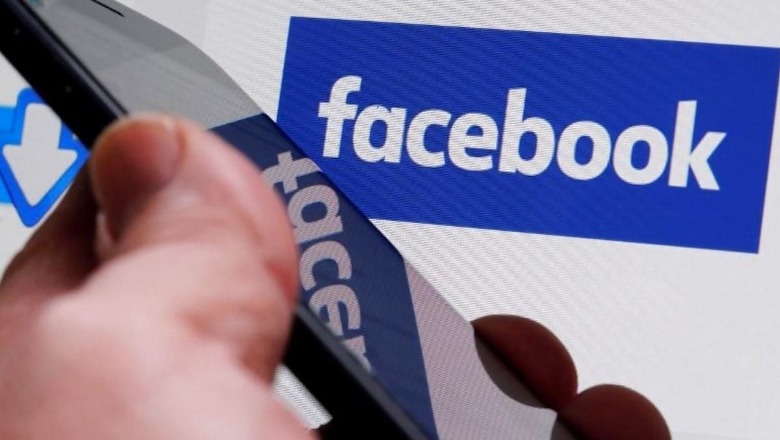
views
Facebook faces what could possibly be the biggest threat to its power and market dominance right now, after the United States Federal Trade Commission (FTC) and a consortium of 48 state and territory attorneys general filed twin lawsuits with a US federal court. The landmark lawsuits seek an injunction to Facebook’s historic takeovers and present ownership of Instagram and WhatsApp, which are both, on standalone terms, massively powerful internet tools by themselves. The lawsuits urge the US government to seek Facebook to divest its assets, and even completely break up the company from its present form, if necessary. The case in point is Facebook’s sheer might, and the nature of its takeovers, which the FTC allege is a clear case of the company shutting out potential competitors even before they could grow into challenging Facebook’s position in the market.
A statement by the FTC’s lawsuit states, “Since toppling early rival Myspace and achieving monopoly power, Facebook has turned to playing defense through anticompetitive means. After identifying two significant competitive threats to its dominant position — Instagram and WhatsApp — Facebook moved to squelch those threats by buying the companies, reflecting CEO Mark Zuckerberg’s view, expressed in a 2008 email, that ‘it is better to buy than compete.'” The trade oversight body further highlights Zuckerberg’s regret of Twitter turning down Facebook’s attempts to buy the company, and also highlight information from collated data to state that while Instagram remains dominant and continues to grow its users, the main Facebook app has been losing users and user interest, therefore clearly showing Facebook’s intentional stifling of an open market for users to choose their products from, at will.
The FTC further claims that Zuckerberg’s Facebook group, after buying WhatsApp in a record $19 billion deal in 2014, has chosen to limit the service’s growth and keep it stuck to a messaging service, instead of allowing it to grow into its own social media service — something that may have rivalled Facebook’s position in the market. “Facebook’s actions to entrench and maintain its monopoly deny consumers the benefits of competition. Our aim is to roll back Facebook’s anticompetitive conduct and restore competition so that innovation and free competition can thrive,” added Ian Conner, director of the FTC Bureau of Competition.
In conjunction with the FTC’s lawsuit, a coalition of state attorneys general led by New York State Attorney General Letitia James has pushed a similar lawsuit against the Facebook group, alleging that Facebook has deployed what it calls a “buy or bury” strategy to brutally quash any competition in the market. “Facebook kept Instagram and WhatsApp running as independent brands to fill the void, so they would not be replaced by another app with the potential to erode Facebook’s dominance,” alleges the second lawsuit.
Responding to these allegations, Jennifer Newstead, vice-president and general counsel at Facebook, said, “The government now wants a do-over, sending a chilling warning to American business that no sale is ever final. People and small businesses don’t choose to use Facebook’s free services and advertising because they have to, they use them because our apps and services deliver the most value. We are going to vigorously defend people’s ability to continue making that choice.”
While the twin lawsuits come as Facebook’s most imminent threat as this signifies the most formal move by US government officials to break up the company, the general narrative of Facebook requiring significant oversight and moderation has been continuing across numerous antitrust hearings at the US Congress. Facebook, on this note, has steadily continued to integrate Instagram, WhatsApp and two of its own apps, Facebook and Messenger, into a tightly knit technology base. It has also attempted to weave a narrative of threats from foreign competitors, stating that while it does welcome government regulation, subjecting them to severe clauses might allow competitors from China to run away with dominant market benefits.
This move marks the third such massive antitrust operation by the US government against major technology companies. The first company subjected to this was Bill Gates’ Microsoft in the early 2000s, followed by Google facing a similar anti-trust lawsuit related to its dominance in Search earlier this year. Going forward, litigators on behalf of the FTC and the complainant states will need to prove in court how Facebook’s takeovers substantially harmed the market, companies, individuals and consumer choices, therefore warranting a move as drastic as breaking up one of the world’s biggest companies by market valuation.
Along with consumers, Facebook also faces allegations that its moves have harmed advertisers, leaving them without any alternative but to comply to Facebook’s terms and conditions for reaching out to consumers. The lawsuits also state that Facebook has also proved to be brutish in the market by first trying to rope in third party, smaller tech companies into using its services, and then ironing them out from Facebook’s ambit when they deemed a service to be a serious threat to their own services. Fellow tech giant Amazon also faces similar allegations when it comes to the way it has treated its hundreds of thousands of retail vendors seeking to operate on its platform.
Read all the Latest News, Breaking News and Coronavirus News here

















Comments
0 comment